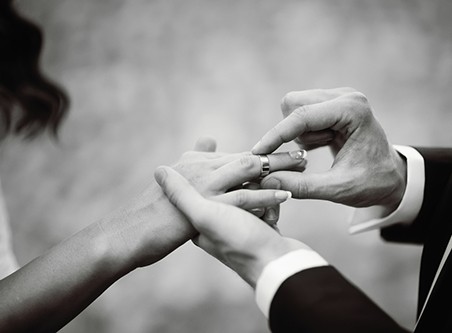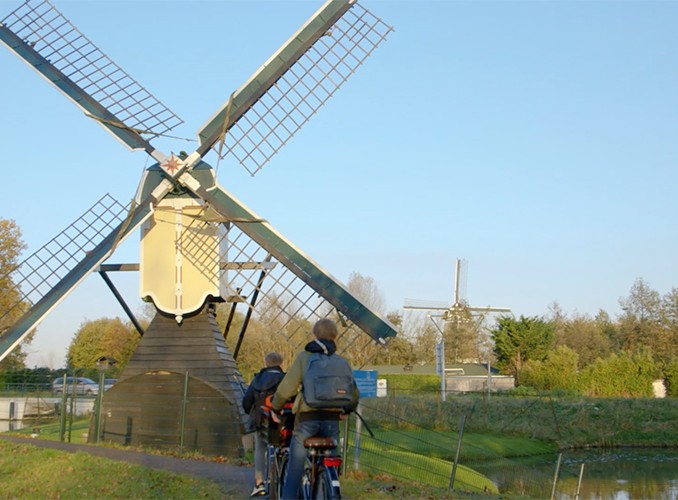New Dutch matrimonial property regime: a ‘limited community of property’
‘My CD, your CD.
And this one belongs to both of us.
But we got it from my mum,
from my mum,
so it’s really mine.’
This verse from a well-known Dutch song is a good illustration of today’s public perception of property rights in marriage. Most people take the view that each spouse’s personal property should remain his or her personal property. This principle is cemented by the new law on matrimonial property.
Proposal for a new law on matrimonial property
The issue of a ‘community of property’ has aroused a great deal of political debate in recent years. Following calls by critics for a change in the law, a new bill has been tabled in parliament under which a ‘limited community of property’ will become the new standard, thus replacing the former regime of a full or general community of property. The bill was recently passed by the lower house of the Dutch parliament. So what exactly does the new regime entail? And what is going to change? For example, will student loans no longer automatically be included as part of a community of property? And what happens if one of the spouses receives an inheritance during the course of the marriage?
The current regime: a statutory community of property
A large proportion of the marriages solemnised in the Netherlands are subject to the Dutch system of community of property. This is a statutory regime that was introduced in 1838 and is pretty unique: hardly any other European countries have a system resembling it. The basic principle is that a community of property is formed as from the moment that both spouses say ‘I do’ during the marriage ceremony. This means that a marriage or a registered partnership, which both are the same in the Netherlands, may actually be one of the costliest transactions you ever perform in your life – without you ever being aware of its ramifications. Until it’s too late, of course.
How does the system work? Well, as from that very moment, all items owned by both spouses (both goods and debts) become jointly owned, even those items that predate the marriage. If one of the spouses incurs a debt, whether before or during the course of the marriage, this is regarded as forming part of the community of property and hence as being the joint liability of both spouses. In other words, your partner’s debt becomes your debt. Clearly, this may come as a piece of unexpected – and rather bad – news.
It also not fair, given that the debt is a personal debt and the other spouse may well have had nothing to do with it. There is a consensus that the current system of a general community of property has become outdated and is no longer consistent with public perceptions of marriage as an institution. Society has become much more individualised than it used to be.
The proposal: a limited community of property
The bill passed by the lower house of the Dutch parliament (and now awaiting approval by the upper house) assumes that only those items of property that are acquired during the course of a marriage should be regarded as being communal property. In other words, a matrimonial community of property consists exclusively of goods acquired by or on behalf of both spouses during the course of the marriage. Gifts and inheritances are regarded as being personal and do not therefore form part of the community. Nor do any debts pre-existing the marriage. This means that, in the event of a divorce, any outstanding debt arising from a student loan is not shared equally between the former spouses. Instead, it is the sole responsibility of the spouse who actually incurred it.
The same applies if one of the spouses receives an inheritance during the course of the marriage. Unlike the present situation, all inheritances and gifts are automatically regarded as being personal items of property. This means, for example, that inheritances do not need to be shared in the event of a divorce.
Tip: keep a careful record!
The new bill has one big drawback, which is the requirement it imposes on spouses to keep a careful record of their property. They are obliged to keep a full record, both at the time of their marriage and during the course of the marriage, of all items of personal property as well as all jointly owned items of property. We know from our experience that many people fail to do this. Unfortunately, couples going through a divorce and members of extended families may well find themselves in deep administrative water. If the two spouses fail to keep a proper record of personal and jointly owned property, it is impossible to make a clear separation between the two. Just imagine that our married couple buy themselves a boat. If no record is made of exactly who paid how much, and if the couple in question subsequently wish to get divorced, the boat will simply be assumed to be their joint property.
What if you own a business before you get married?
Under the new regime, any business assets you own prior to getting married do not form part of a community of property. This also applies to business profits and losses. This is good news for the spouse who is not involved in the business, as he or she is protected against the effects of any business losses and is hence not exposed to any business risk.
At the same time, it’s also good news for the spouse who is running the business, as it means that the other spouse is not entitled to a share of the assets that were present in the business prior to the marriage.
On the other hand, the ‘community of property’ has to be paid a ‘reasonable fee’ for the knowledge, skills and labour that the spouse in question has devoted to his business during the course of the marriage. This reflects the basic principle underlying the new regime that all income earned during the course of the marriage is joint income. However, the precise nature of this entitlement is not clear at present: at which point does this ‘reasonable fee’ become payable? How much it should be? In short, if you own a business and you are planning to get married, it still makes good sense to consult a civil-law notary (notaris in Dutch) and ask him or her to draw up a prenuptial agreement for you.
More information about the law on matrimonial property?
If you’d like to find out more about the Dutch law on matrimonial property or if you have questions relating to your own specific situation, please feel free to get in touch with me or one of our family law specialists.







